
God gave Noah detailed instruction on how to build the ark — what kind of trees to use, how to seal it against leaks, where to put the windows and doors, and the dimensions of its length, breadth and height. What did Noah do? He got out his axe and started cutting down trees. And he said nothing.
God said to Noah, "Bring two of every living thing into the ark, two of each form of life to keep them alive with you. They will be male and female" (Genesis 6:19). Noah assembled the menagerie. He did as he was told. And he said nothing.
Through the entire Flood story, Noah did not utter a single word. He followed God's every command. We are told three times of his absolute obedience. But he was silent.
I want to consider what kind of hero Noah is in this story. And I also want to consider God. Frustrated with the creatures that filled the earth, God decided to ditch the whole project. God opened up the floodgates that separated "the waters above from the waters below" (Genesis 1:7) to return the earth to the chaos that existed before creation's first day. Not only that, God chose one lone human being to be a witness to the terracide.
Noah played his part. Faced with the extinction of the human race, he never questioned God. He did not desperately bargain with God, as Abraham would later do in an attempt to save the people of Sodom and Gomorrah. Noah did not argue and plead with God as Moses would later do when God threatened to destroy the Israelites for the sin of the Golden Calf. No. Noah was silent, and that silence seems to speak volumes about him.
We only hear Noah's voice later in this week's Torah portion (Noach), when he became a drunk and passed out naked in his tent. His son Ham saw Noah lying there and told his brothers, Japheth and Shem. They came to cover up their father, carefully avoiding the sight of his nude body. When Noah woke up and found out what Ham had done, he blazed in anger against him and spoke the only words ascribed to Noah in the Torah. He said that Ham's descendants, the Canaanites, would be cursed and would become slaves to serve the descendants of his brothers — all because Ham saw his father naked when he was drunk (Genesis 9:21-27).
What is this story about? Noah was silent in the face of world-wide slaughter, but angrily cursed his own son for the "crime" of seeing him naked. God, who could not tolerate the cruelty of human beings, decided that it was better to kill them than to allow their imperfection to continue. The morality of the story seems upside-down. It inverts our expectations about right and wrong.
And all of it comes from saying nothing.
God, up to this point in the Torah, did not have any relationship with any human beings. God had not conversed with them since the days of the Garden of Eden; God only gave orders. Maybe this was the reason why God so easily came to the conclusion that humanity could be discarded with no more feeling than a scientist gives to washing a petri dish clean of bacteria. Morality, it seems, only begins with connection — with having a relationship and an emotional bond.
Noah, too, seems strangely aloof. He did not discuss the Flood with his wife and children. He just collected them and put them into the ark along with the pairs of aardvarks, guinea pigs and snakes. He did not talk to the God who did not know him, who did not relate to the struggles and conflicts of living a human life. Noah was silent, disconnected, and, therefore, without a sense of moral duty.
The Talmud seems to hint at this. Where the Torah says that Noah was "a righteous man, pure-hearted in his generation" (Genesis 6:9), the rabbis comment, "In comparison with his generation he was righteous, but if he had been in Abraham’s generation, he would not have been considered of any importance" (B. Sanhedrin 108a).
This is our lesson. To be moral requires connection. You cannot live a righteous life in isolation from humanity. Morality is a trait that emerges from the experiences of caring for others, knowing their lives, seeing them in pain, having compassion for their flaws, and loving them despite it all. It cannot come from silence.
By the end of the story, God learned the lesson, for the Torah tells us, "God remembered Noah" (Genesis 8:1). After one hundred and fifty days of the Flood, God saw poor Noah in the ark, taking care of the animals, wondering whether he too would eventually drown in the waters that consumed the rest of the human race. God saw Noah and learned how to care about one person … and that opening of God's heart opened the possibility of caring for every person.
God smelled the sweet odor of Noah's sacrifice and decided, "No more shall I curse the earth because of the humans. Their desires are ill from their youth. So, no more shall I destroy all life as I have done" (Genesis 8:21). After the story of Noah, God reached out to connect with Abraham and formed a covenant — a lasting relationship based on compassion and trust.
This is the story, at last, of God forming a tender and caring connection with humanity. This also is the story of just how wrong things can go when we allow ourselves to become lost in the silence of fragmentation and disconnection. We can treat each other like petri dishes of bacteria. We can curse our own children. We can destroy worlds.
E. M. Forster said, "Only connect!" and it is the great lesson for our spiritually disconnected age. If we try to live only in the cocoon of our narrowing comfort zones, cut off from meaningful connection to others, if we pursue only our own selfish interests, we will drown. Always, at any cost, end the silence. Connecting with others is our only way to become human. In the end, it is our only way of becoming godly.
Other Posts on This Topic:
Noah: The Redemption of God
Counting from Freedom to Covenant: Connection

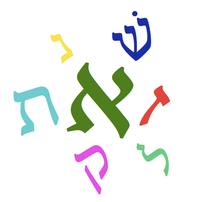

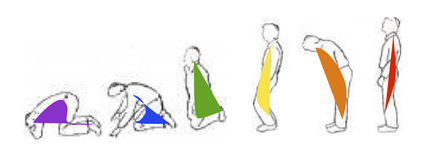
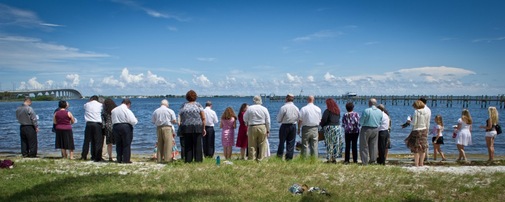
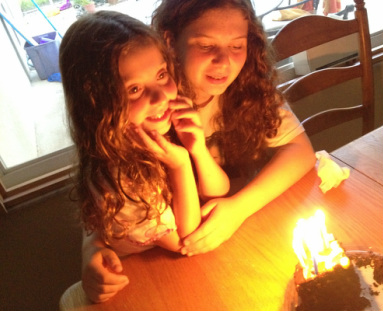
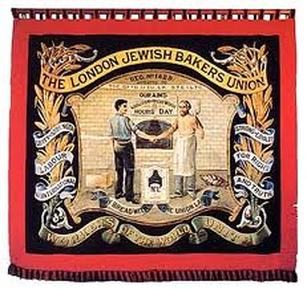
 RSS Feed
RSS Feed
